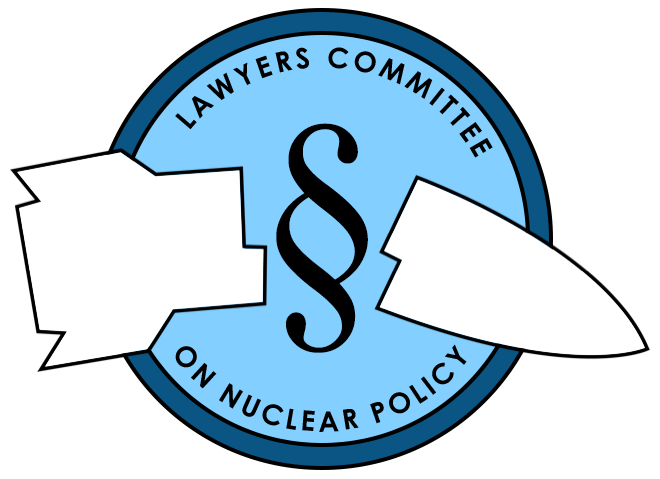Russian Nuclear Weapons Policy and the Right to Life
List of Issues Submission to the United Nations Human Rights Committee During its Periodic Review of the Russian Federation
129th SESSION OF THE UNITED NATIONS HUMAN RIGHTS COMMITTEE, 29 JUNE TO 30 JULY 2020
Submitted 1 June 2020 by:
LAWYERS COMMITTEE ON NUCLEAR POLICY
lcnp.org; johnburroughs@lcnp.org
220 E. 49th St., New York, NY 10017 USA
+1 (212) 818-1861
Founded in 1981, LCNP is a nonprofit educational association of lawyers and legal scholars that engages in research and advocacy in support of the global elimination of nuclear weapons and a more just and peaceful world through respect for domestic and international law. LCNP serves as the United Nations office of the International Association of Lawyers Against Nuclear Arms.
WESTERN STATES LEGAL FOUNDATION
wslfweb.org
655 13th Street, Suite 201, Oakland, CA 94612 USA
Founded in 1982, WSLF is a nonprofit organization that seeks to abolish nuclear weapons as an essential step in making possible a more secure, just, and environmentally sustainable world. Grounded in commitments to nonviolence and international law, WSLF provides independent information and analysis to a wide range of audiences. WSLF is an affiliate of the International Association of Lawyers Against Nuclear Arms.
1. In paragraph 66 of General Comment No. 36 on the right to life set out in Article 6 of the International Covenant on Civil and Political Rights (ICCPR), the United Nations Human Rights Committee stated (endnotes omitted):
The threat or use of weapons of mass destruction, in particular nuclear weapons, which are indiscriminate in effect and are of a nature to cause destruction of human life on a catastrophic scale, is incompatible with respect for the right to life and may amount to a crime under international law. States parties must take all necessary measures to stop the proliferation of weapons of mass destruction, including measures to prevent their acquisition by non-state actors, to refrain from developing, producing, testing, acquiring, stockpiling, selling, transferring and using them, to destroy existing stockpiles, and to take adequate measures of protection against accidental use, all in accordance with their international obligations. They must also respect their international obligations to pursue in good faith negotiations in order to achieve the aim of nuclear disarmament under strict and effective international control and to afford adequate reparation to victims whose right to life has been or is being adversely affected by the testing or use of weapons of mass destruction, in accordance with principles of international responsibility.
2. Under the ICCPR, Article 4, the right to life is non-derogable, to be observed in all circumstances, even in the event of a “public emergency which threatens the life of the nation.” The Russian Federation is a state party to the ICCPR and as a result is obligated to implement its provisions in good faith according to Article 26 of the 1969 Vienna Convention on the Law of Treaties (pacta sunt servanda). Even if the General Comment is not legally binding as such, it is considered the Committee’s authentic interpretation of Article 6 and the relevant practice thereto.
Continue reading here.

